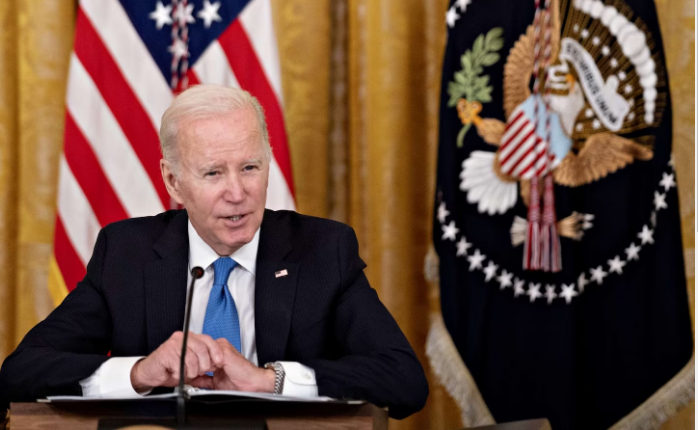As the country gears up for the Super Bowl, an unexpected shift in tradition has emerged—President Biden has chosen to forgo the customary pre-game interview with CBS News. The decision marks the second consecutive year that the President has abstained from this practice, signaling a departure from the established norm observed in recent administrations.
In a surprising move, the White House declined CBS News’ request for a pre-Super Bowl interview with President Biden, a tradition that has allowed past presidents to address a vast audience ahead of the highly-watched sporting event. Scheduled to air at 6:30 p.m. EST, the Super Bowl attracts tens of millions of viewers globally, making it a strategic platform for leaders to communicate with a diverse and extensive audience.
The decision to skip the pre-Super Bowl interview is part of a trend set last year when President Biden chose not to engage in an interview with Fox News. In his first two years in office, Biden had granted interviews to the networks broadcasting the game, namely NBC and CBS. This departure from established practice raises questions about the evolving dynamics of presidential engagements with major sporting events and how leaders choose to communicate with the public on such high-profile platforms.

The Super Bowl, an annual event that goes beyond the realm of sports, serves as a cultural phenomenon and a reflection of American entertainment. It has become a tradition for sitting presidents to participate in pre-game interviews, providing an opportunity to address a broad audience on various topics, from policy issues to broader cultural themes. By opting out of this tradition, President Biden is charting a different course in how the highest office engages with the public during significant national events.
The move not only marks a change in the President’s approach but also prompts speculation about the evolving nature of the relationship between the presidency and the media landscape. In an era of instant communication and diverse channels for reaching the public, leaders have various options to convey their messages. The decision to skip the pre-Super Bowl interview raises questions about the efficacy of traditional media engagements in the age of social media and alternative communication platforms.
As the Super Bowl is set to be broadcasted by CBS, the decision gains added significance. The network, which had secured interviews with the President in his first two years, will not have the opportunity to continue this tradition for the second consecutive year. The absence of a presidential interview may impact the network’s coverage and viewership dynamics, as the pre-game interviews had become an integral part of the Super Bowl experience for many viewers.
While President Biden’s decision aligns with his previous year’s choice, it also diverges from the practices of other past presidents. Former President Trump, for instance, declined a pre-Super Bowl interview with NBC News before the 2018 game. The varying approaches of different leaders highlight the discretionary nature of this engagement and the unique considerations each administration takes into account when deciding on such media interactions.
Read More:
- Unveiling the Disturbing Past of Joliet Mass Shooting Suspect in Illinois: Police Records and Video Reveal a History of Violence
- Constitutional Breach: Appeals Court Rules Against FBI in Beverly Hills Safe Deposit Box Raid
- Indicted for Attempted Murder: Controversial Decision Raises Questions About Mental Health and Legal System
In a media landscape where presidential communication strategies continually adapt to changing dynamics, President Biden’s choice not to participate in the pre-Super Bowl interview underscores the evolving nature of the relationship between the presidency and major media events. As the nation anticipates the Super Bowl spectacle, the absence of a presidential interview adds a layer of intrigue to an event that extends beyond the realm of sports into the broader cultural and political landscape.

